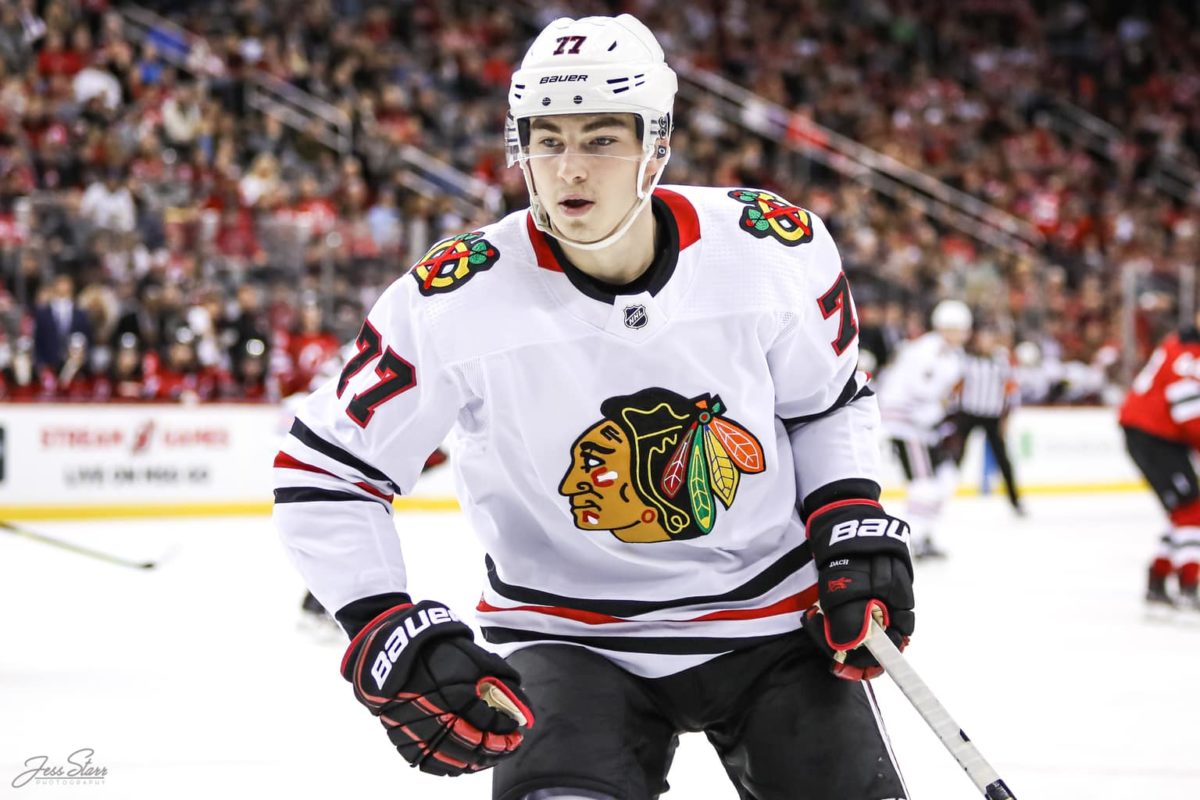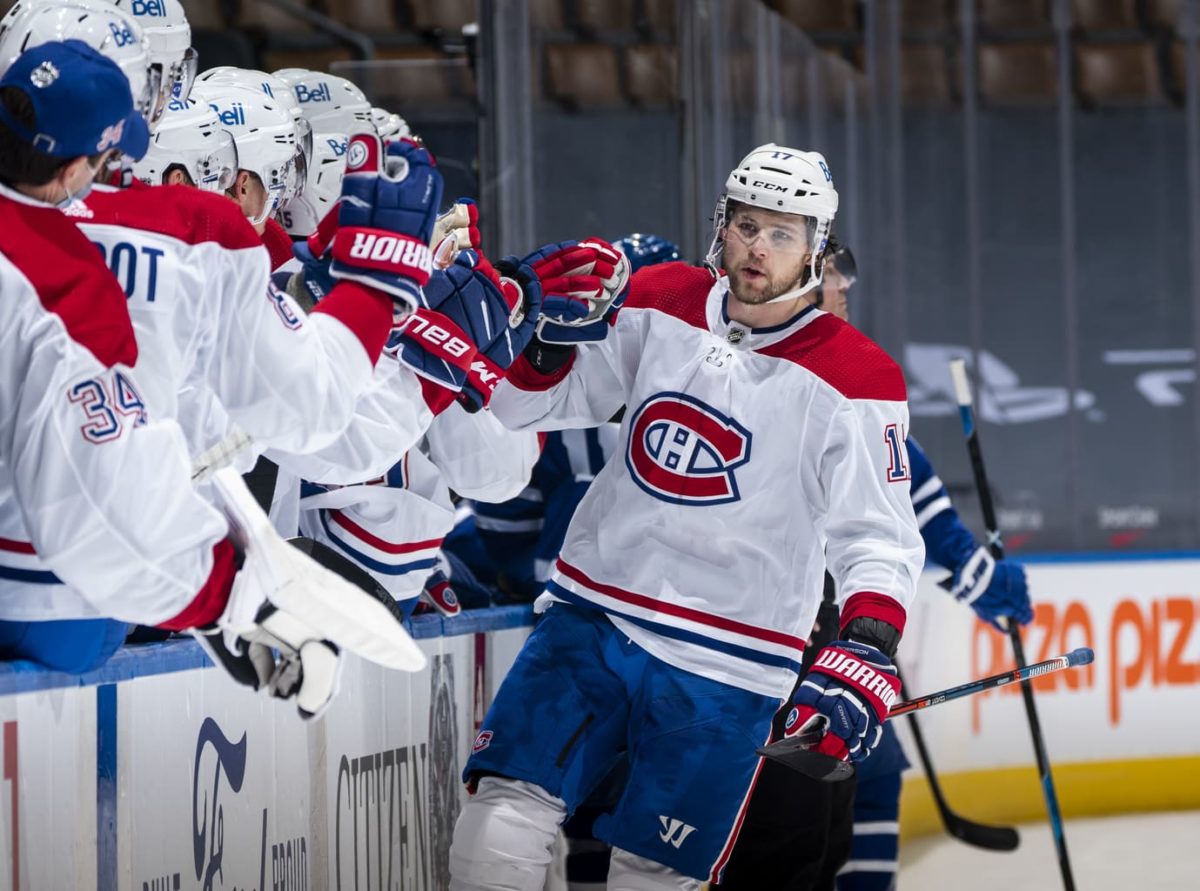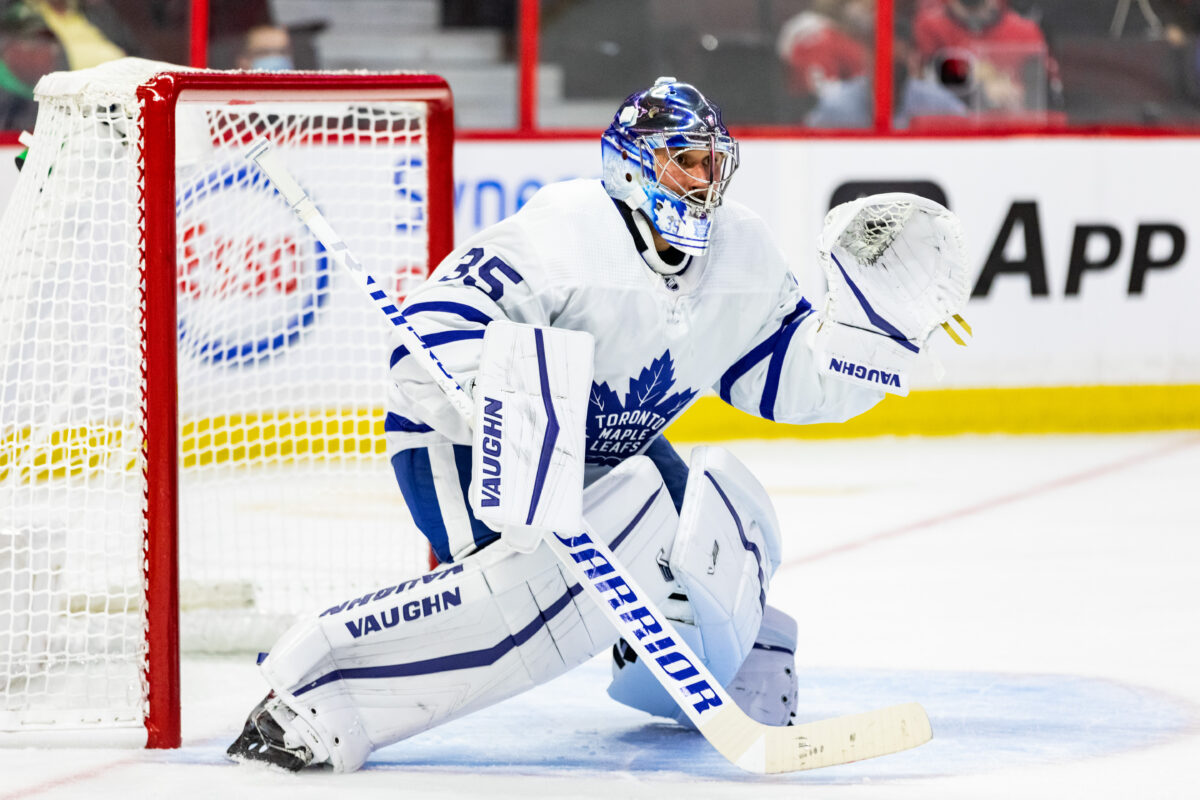The Montreal Canadiens are doing their best to improve the team and fix their cap issues this offseason. With two restricted free agents (RFA) still unsigned and having only a little over $200,000 in cap space, they’ll have to find a way to get more money for the unsigned players. The club still has almost two months before they need to be signed, but time is ticking, and they’re running out of options.
Dach and Primeau Remain Unsigned
Kirby Dach and Cayden Primeau are the two lone RFAs yet to sign new contracts. Dach was acquired at the draft in a blockbuster three-team trade that involved fan favourite Alexander Romanov going to the New York Islanders for the 13th overall pick, which they then flipped to the Chicago Blackhawks for Dach. Primeau had been anointed as the heir apparent to Montreal’s star goalie Carey Price until his recent struggles at the NHL level in the past couple of seasons. Although he struggled in the NHL, Primeau showed he still has a lot of potential by helping lead the Laval Rocket to the American Hockey League (AHL) conference finals.

Primeau shouldn’t take too much cap space to sign and should come in under $1 million per season if it’s a multi-year contract. On the other hand, Dach will be a lot more; if you compare him to what the New York Rangers signed Kaapo Kakko to, which was a $2.1 million annual average value (AAV), Dach could cost $2.5 million or up. Kakko had only 17 points last season but dealt with an injury that had him miss 31 games; Dach scored 26 points but only missed 12 games. For the Canadiens to eat free agent seasons from Dach, they will have to raise the price a little; they will also have to consider the tax difference in Canada and Quebec.
Canadiens Could Take Easy Route and Go 10% Over Cap
Each team in the offseason is allowed to go 10 percent over the cap to sign players to at least start to get situated for the next season. The caveat to this rule is at midnight before the first day of the season, and each team must be cap compliant, meaning they must be equal to or under the cap. The Canadiens will not need to go the complete 10 percent over the limit to sign Primeau and Dach, and they will only need approximately $4 million to do so and have all their players signed.
Related: Montreal Canadiens: Kirby Dach’s Contract Comparables
The issue with going this route to sign players is that before the season starts, you still have to clear cap space. A couple of players will go to the AHL and clear some cap space, but it won’t be enough; they would also have to either move a player via trade or bury a more significant contract in the minors. Another way to free up cap space would be to put a player on long-term injury reserve (LTIR) and worry about clearing cap space later if that player returns before the end of the season. Paul Byron and Carey Price could both go on LTIR if they are not healthy to start the season; Byron is dealing with a hip injury and looks to be out for a while to start next season, while Price looks like he could be ready to go. Byron’s cap relief would be more than enough to cover any cap overages.
Canadiens Could Make a Trade to Free Up Cap Space
The Canadiens could make a trade to free up cap space, which could be the best thing to do if they want to be assured that they have the freedom to sign both players. Several players are rumoured to be on the move from the Canadiens, including Christian Dvorak, Josh Anderson, and Mike Hoffman. If they can trade any of these players without taking any money back, they would have more than enough cap space to sign Dach and Primeau. If they trade Dvorak, they must be sure that Dach will be the go-to number two center on the team, and they will need to find a fourth-line center to round out the bottom-six. Hoffman, as a winger, is expendable but could be the hardest to move, given his contract of $4.5 million, and he is an offence-first type player who rarely backchecks.

Of the three mentioned, Anderson is the most marketable asset, as he’s a young power forward that other teams covet and have been asking for. Canadiens general manager (GM) Kent Hughes is a massive supporter of Anderson and wants to see him in the Habs lineup; although Hughes is taking calls, he is not putting him on the trade block. This could make clearing cap space through trading more difficult as anyone else could be harder to move without taking a contract back or giving up assets just to have another team take the contract.
The most straightforward way to rid the team of a contract is to trade it away to a team close to the cap floor for the most sought-after hockey player ever: future considerations. Like the Las Vegas Golden Knights did with Max Pacioretty, Montreal could give a player away for nothing and move on with the cap space to sign their RFAs.
Canadiens Could Give Up an Asset to Move a Contract
The worst possible way the Canadiens could move a contract is to trade a valuable asset to a team for them to take a bad contract. The Toronto Maple Leafs have done this a couple of times where they sold a first-round pick to move a contract that bogged down their salary cap. Most recently, they traded Petr Mrazek to the Chicago Blackhawks with first- and second-round picks in this past draft and freed up $3.8 million in cap space.

The Canadiens have some players they could move this way, such as Hoffman or Joel Armia. Trading away a player with a high draft pick is counterproductive, especially when the Canadiens are in rebuild mode and need all the high draft picks they can get. They would be better off trying to trade one of their expiring contracts now instead of at the trade deadline; if they could move the contract of Jonathan Drouin, Evgenii Dadonov, or Jake Allen, they could free up enough space.
The issue with this is that any of these three players could be more valuable at the trade deadline than they are now. It will surely give the Habs cap relief, but they could lose out on a quality prospect or high draft pick at the deadline. It is better to take this risk — to lose a contract — than to trade away a high draft pick, but there are easier ways to clear cap space without having lousy asset management. Whatever Hughes decides to do, if it’s anything like what he has done so far, it will be what’s best for the team going forward.